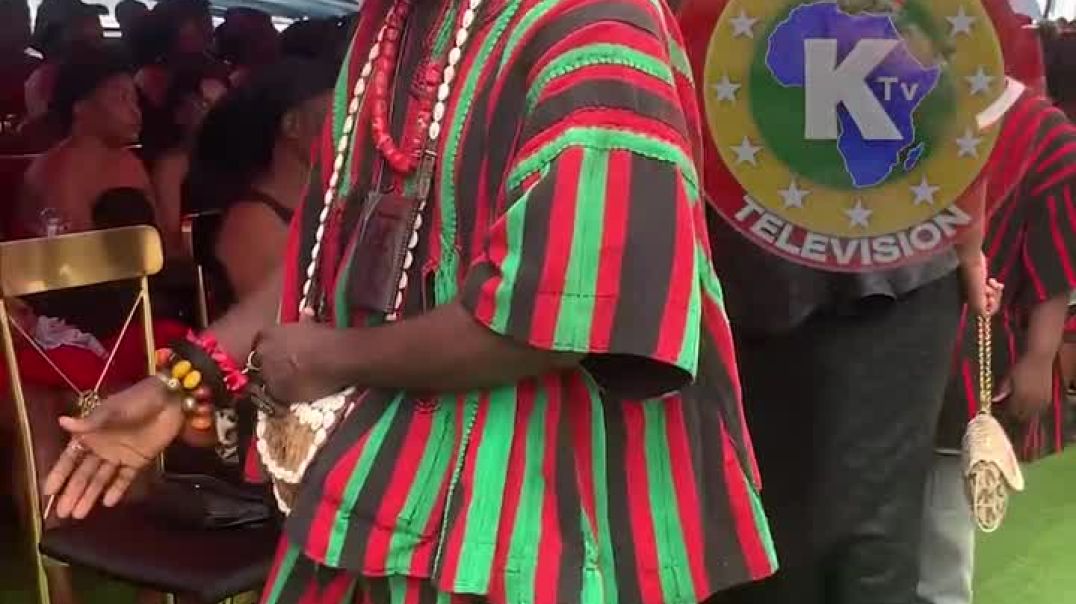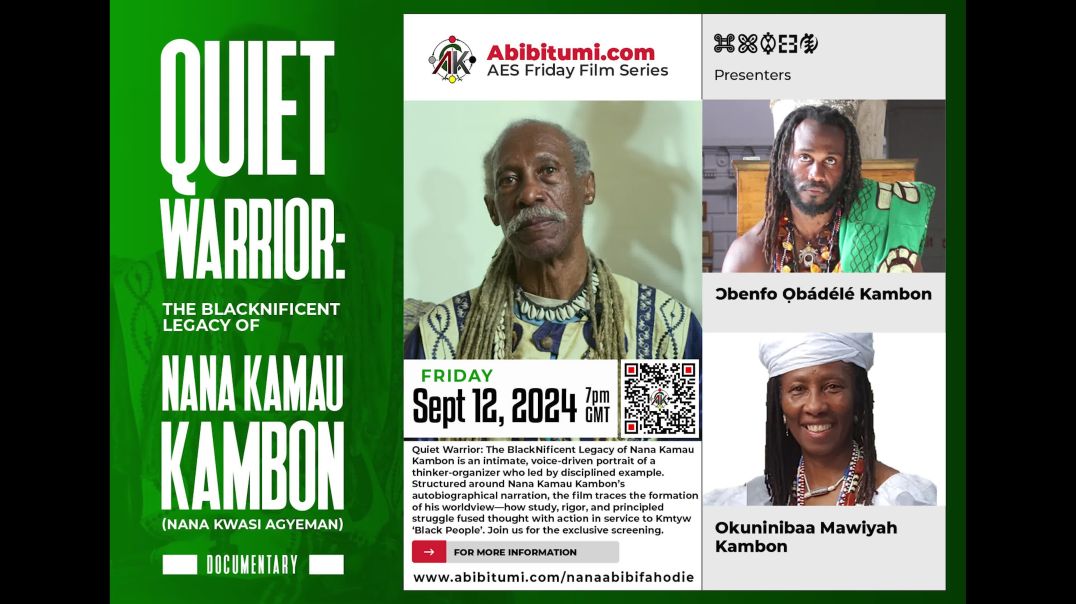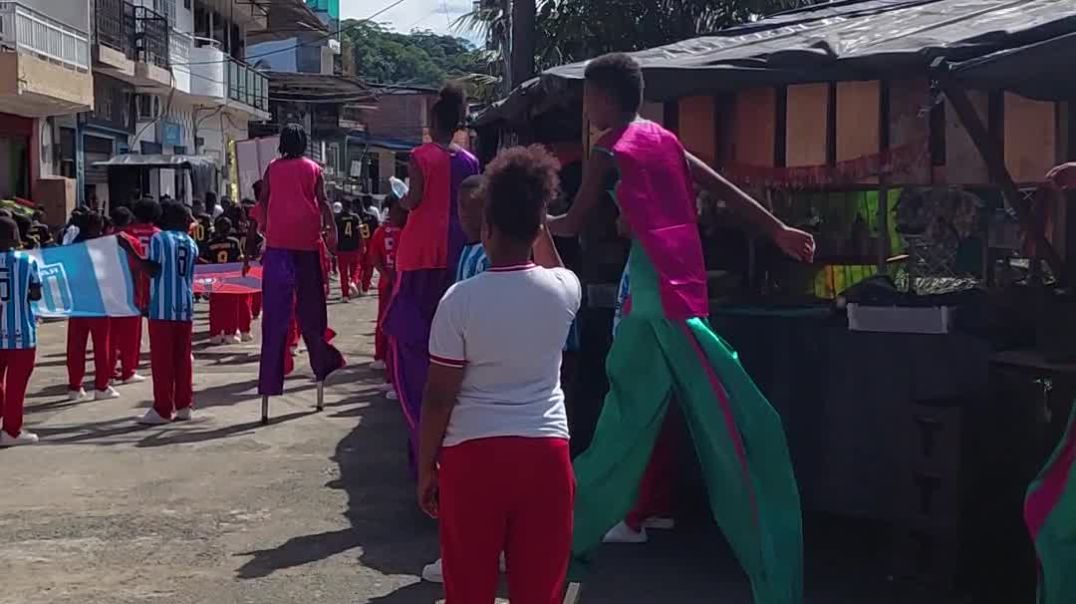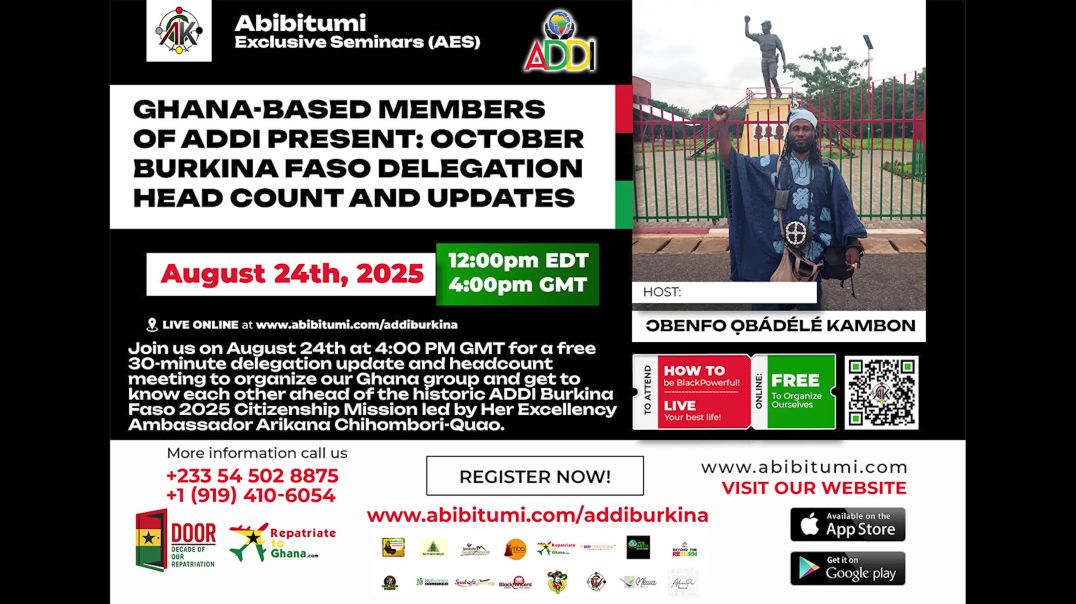Travel & Events
Ɔbenfo (Professor) Ọbádélé Kambon - Founder of Abibitumi, Nana Akosua Sewaa Seɔyɔ I - Ejisu (Ad
Ɔbenfo (Professor) Ọbádélé Kambon - Founder of Abibitumi, Nana Akosua Sewaa Seɔyɔ I - Ejisu (Adweso) Abɛnase
Current President of the African American Association of Ghana (AAAG) and the DIASPORANS arrive at the residence to pay their respects to Apostle Dr. Kwadwo Safo Kantanka
#kantankaliveson #kantanka
Pt. 2 Ɔbenfo Ọbádélé Kambon Discusses Otumfoɔ Ɔsɛe Tutu II arriving for the Asantehemmaa’s final
Otumfuo Osei Tutu II arPt. 2 Ɔbenfo Ọbádélé Kambon Discusses Otumfoɔ Ɔsɛe Tutu II arriving for the Asantehemmaa’s final ritesrives for the Asantehemaa’s final rites #joyprime
Barbacoas is a Black community in the deep South of the Pacific Coastal Choco rainforest region of the country neocolonially known as colombia. This was a day in May of 2025, where all the local schools came out to do a parade all over the town.
Sankɔfa Journey Interest and Sharing Session
Baba Ọmọ́wálé Centenary close out party in Oguaa 2025-05-18
Calvin Daniels's Moringa Farm










